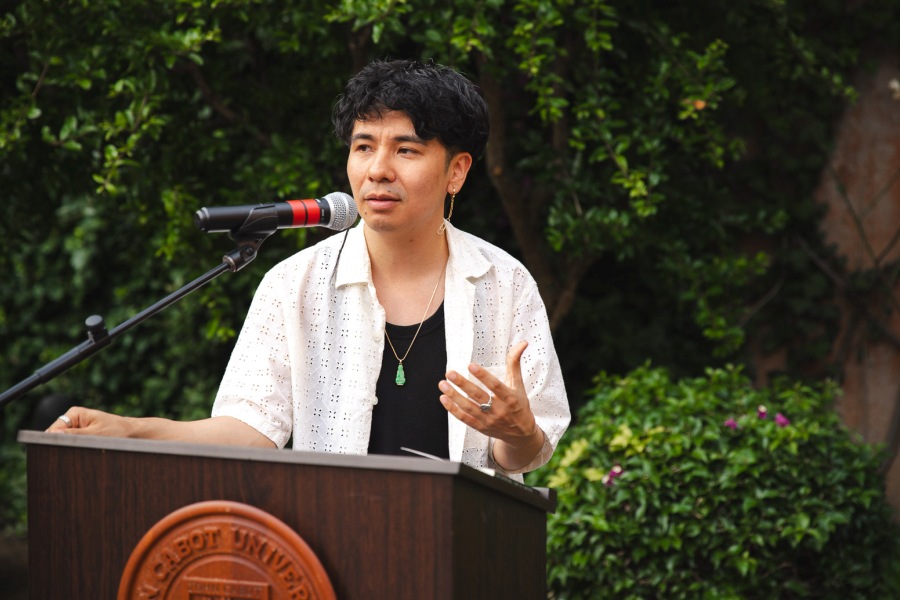Smart Working Beyond the Emergency: JCU Welcomes Michel Martone
“We can’t solve the problems that smart working poses by thinking about solutions that would have worked for in-presence work. New problems require new solutions. The future is also from remote.” Michel Martone
John Cabot University welcomed former vice-minister of labor Michel Martone, who presented his book on Smart Working called Il lavoro da remoto. Per una riforma dello smart working oltre l’emergenza (“Working from Remote. For a Reform of Smart Working Beyond the Emergency,” La Tribuna, 2020), on March 12, 2021. The presentation was held during the closing ceremony of the Scuola di Servizio Civico (School of Civil Service), founded in 2019 by politician and former mayor of Rome Francesco Rutelli.
Conceived during the COVID-19 lockdown in Italy, Martone’s book is a collection of contributions on the topic of smart working that use a multidisciplinary approach to tackle various aspects related to it. The book also includes numerous case studies. In 2015, only 500 thousand people were doing smart working, but during the COVID-19 pandemic, the number grew to eight million. According to Martone, smart working has become a new frontier, which will change today’s predominant work culture.
Martone’s analysis revealed that businesses that adopt smart working usually have a young manager, tend to be more competitive, and are more likely to grow and succeed. According to the World Economic Forum, only 24% of businesses cannot turn to smart working, which should be one of the first things to consider when starting a business. In fact, Martone believes that smart working will continue to be prevalent even after the COVID-19 crisis.
Smart working has helped many businesses to stay afloat during the pandemic, but despite it having various benefits, it can also have a problematic side. An example can be an increased pressure that might be put on employees to show results as a way to demonstrate their productivity away from the usual workplace. Smart working requires a sense of responsibility, a certain amount of freedom, and trust between employer and employee. In fact, some businesses actually grew during the pandemic thanks to employees’ ability to effectively coordinate their work.
According to statistics, over 250 thousand young university graduates have left Italy and emigrated to other countries in search of better opportunities in the past ten years. One of the benefits that smart working might bring about is the ability to work from anywhere in the world, eliminating the geographic barrier and creating new job opportunities.
However, working from remote often means being always connected and available, and the line between personal time and work time might become blurred. Moreover, some people might have technical problems, such as a bad connection or an old computer. Others might have other personal issues that might make working from home difficult. Therefore, Martone believes that regulations should be developed, because smart working will not disappear after the COVID-19 crisis, but it will very likely become a normal way of working.






